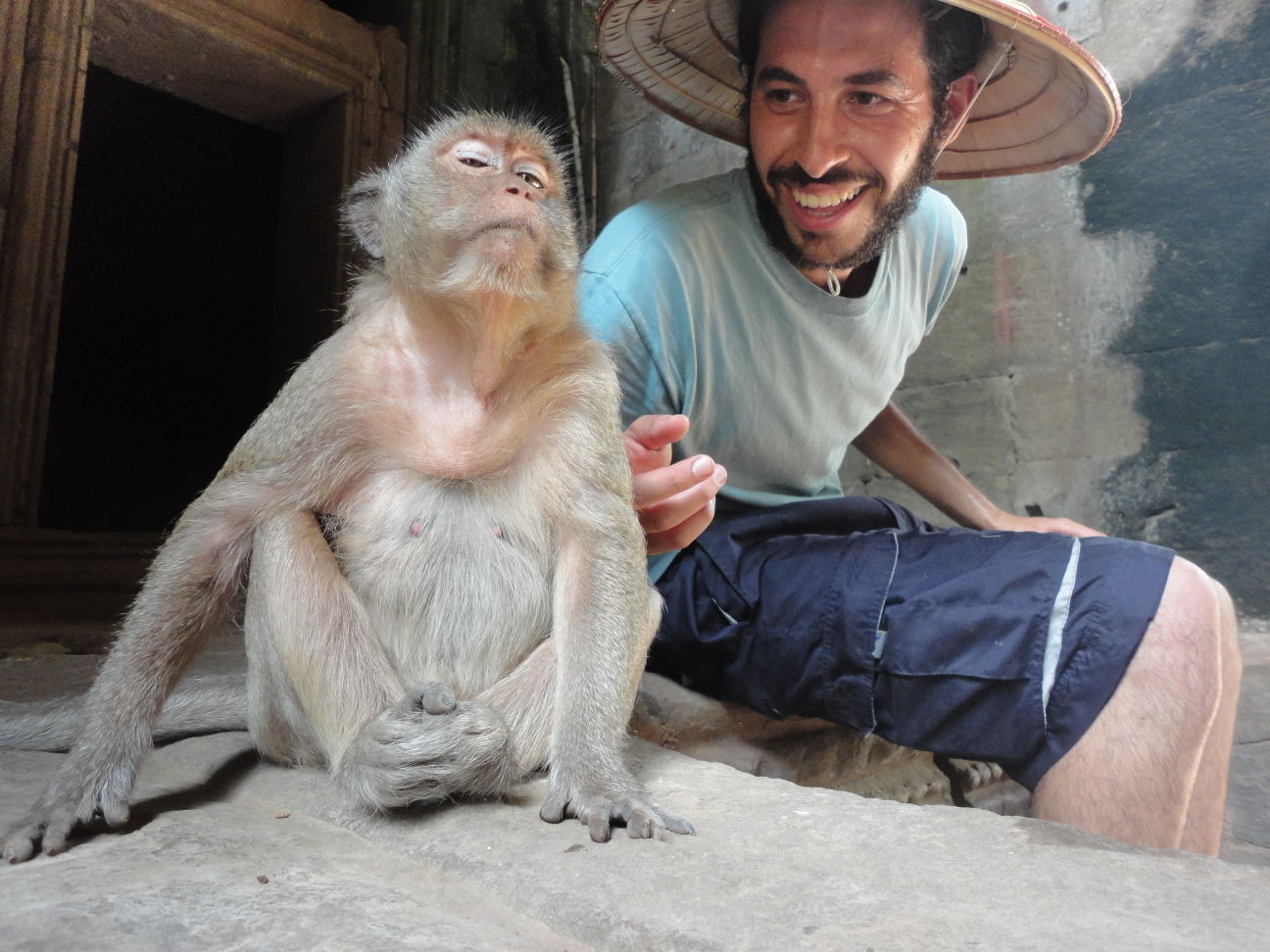Sitting in his hot, cramped Brooklyn apartment in the summer of 2012, David Streisand felt he needed to get away.
“If I could be anywhere in the world right now, where would I go?,” the 29-year-old Mineola resident and Wheatley School graduate asked himself then.
Antarctica and Australia came to mind first.
A deft user of frequent-flyer miles and credit card benefits, Streisand started planning a four-month trip that took him to those places and many others.
From January through May 2013, he traveled 142,500 miles for just $240.75, using a method called “travel-hacking.”
Now he’s written a book about his experiences crossing the globe — and how he did it so cheaply.
“Everywhere I went there was something that didn’t go according to plan or how I expected,” Streisand said. “… (A)fter a while I realized it’s just kind of the nature of traveling — just kind of deal with it, and be patient.
Streisand’s interest in travel started early, he said.
As a child in Roslyn Heights, his mother would read National Geographic articles to him. He said his “interest was peaked most” during history classes and cultural events at Wheatley, where he graduated in 2004.
When he started planning his journey, Streisand had travel-hacked four trips, paying $7 between them.
He started with a $3.75 flight to Uruguay, then hitchhiked through Argentina to Ushuaia, the world’s southernmost city.
From there he took a ship to Antarctica, where he spent five days, sleeping under the stars there one night.
“It was quiet. It was peaceful,” he said. “Not many people get to sleep on Antarctica without a tent or anything.”
Then Streisand took a $50 flight to Australia, where he did 10 days of silent meditation and volunteered on an organic farm.
After visiting an ancient city nearly uninhabited island in Cambodia, he met up with his then-girlfriend Christine King, now his fiancee.
King was on a similar trip of her own, and the couple found out she was pregnant about a week before they left.
Together they celebrated the Thai new year in Chiangmai, in the northern part of the country, and traveled down a river in Laos. It was like “an extended honeymoon,” Streisand said.
“It would have been three to four years’ worth of vacations together to have that much one-on-one time together,” he said.
They parted ways and Streisand made a 16-hour stop in Ethiopia, saw the Great Pyramids in Cairo and saw all of Austria in a night before returning to New York.
Part of his low-cost travel strategy involved “couch surfing,” staying with locals for free.
That gave him a truer look at how people lived in each place he visited, he said, and led him to a deeper insight.
“(E)verybody is pretty much the same around the world, in the sense that everybody just wants to be happy and care for their family and do good things for people,” he said.
Most of the savings, though, came from the strategic use of frequent-flyer miles earned through credit-card reward programs.
Streisand said he’s had more than 30 credit cards in the past four years, accruing more than a million miles. He uses multiple spreadsheets to track his “travel hacking” efforts.
“Organization is key,” he said.
To get deep travel discounts, Streisand advises determining a dream destination and then researching which credit cards and airlines match up for lucrative rewards.
It’s important to start with a few cards and always pay them off on time, he said. But “once a system is in place, then it’s easy to scale up.”
All the details of his trip and travel-hacking tips are in his self-published book, “Memoirs of Napoleon Streisand.”
He raised $1,424 through crowd-funding campaign to fund the project, and just shipped out the first books to donors Dec. 28, he said. He hopes to make it publicly available by April.
Streisand and King now live together in Mineola with their daughter Bella, who turned 2 in August.
One of the biggest lessons his travels have taught him: “keep things simple.”
“It taught me how to be resourceful,” he said. “It’s better to be prepared with creativity than with extra stuff.”



